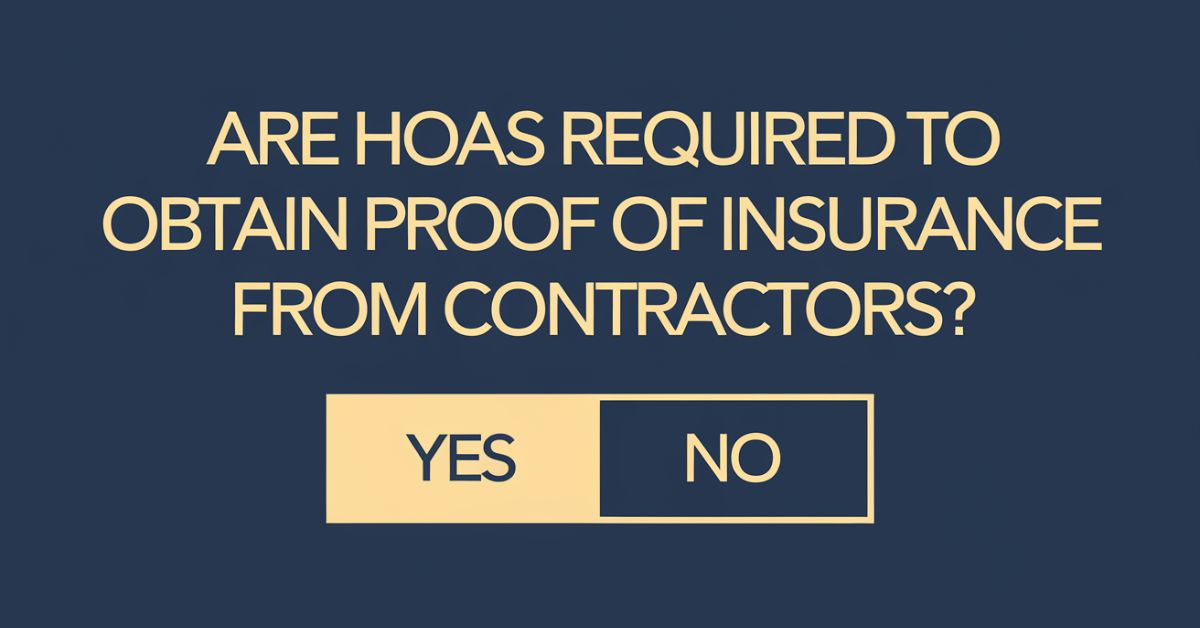Homeowners associations, or hoas, are groups that manage shared spaces in communities. They often hire workers to fix things or do projects. They need to be careful when hiring these workers, called contractors.
One important thing it should do is ask for proof of insurance from contractors. This helps protect the hoa and its members if something goes wrong. It’s a smart way for hoas to avoid big problems.
This article will explain why it should get proof of insurance from contractors. We’ll look at what kinds of insurance matter and how it can check for it. We’ll also talk about what can happen if hoas don’t get this proof.
Why Insurance Matters for HOAs?
They have a big job to do. They take care of shared areas like pools, parks, and clubhouses. To do this, they often need to hire contractors. These workers might fix roofs, clean pools, or plant trees.
When contractors work for it, things can sometimes go wrong. A worker might get hurt, or they might damage something by accident. If this happens, someone has to pay for it. That’s where insurance comes in.
Insurance helps protect both the hoa and the contractor. If the contractor has good insurance, it can cover costs if there’s an accident or mistake. This means the hoa won’t have to use its own money to fix problems. It’s a way to keep the hoa and its members safe from surprise expenses.
Types of Insurance HOAs Should Look For
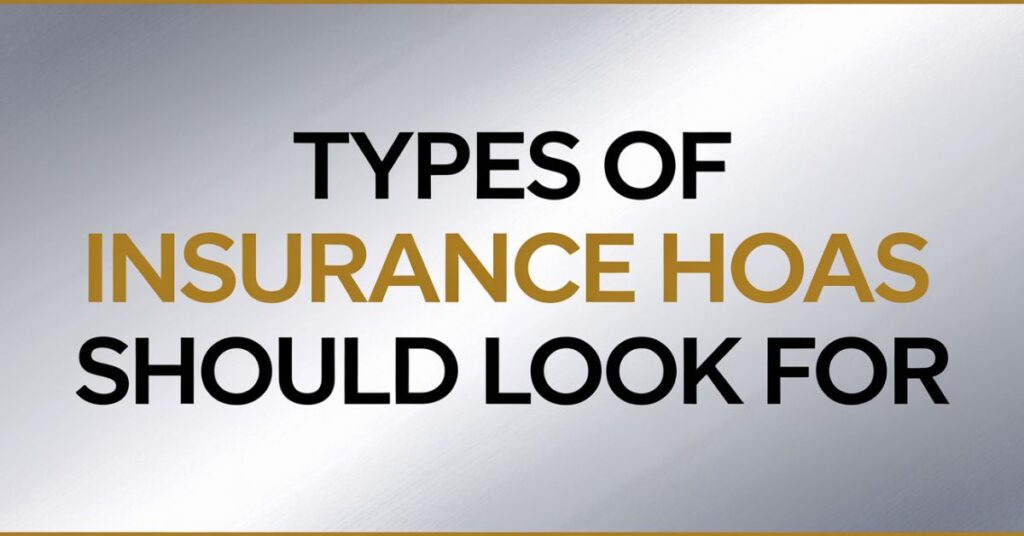
When they hire contractors, they should ask about a few different kinds of insurance. The main ones are general liability insurance and workers’ compensation insurance. These types of coverage help in different ways.
General liability insurance is for accidents that might hurt someone else or damage property. For example, if a contractor breaks a window while working, this insurance would pay to fix it. It also helps if someone gets hurt because of the contractor’s work.
Workers’ compensation insurance is for the contractor’s employees. If a worker gets hurt on the job, this insurance pays for their medical care and lost wages. Without it, the hoa might have to pay these costs. That’s why it’s so important for hoas to check for this coverage.
How HOAs Can Verify Insurance?
Hoas need to do more than just ask if a contractor has insurance. They should take steps to make sure the insurance is real and enough. How it can check:
- Ask for a certificate of insurance from the contractor
- Make sure the insurance policy is current and won’t expire soon
- Check that the coverage amounts are high enough for the job
- See if the hoa is listed as an “additional insured” on the policy
- Keep copies of all insurance documents on file
Understanding Insurance Requirements
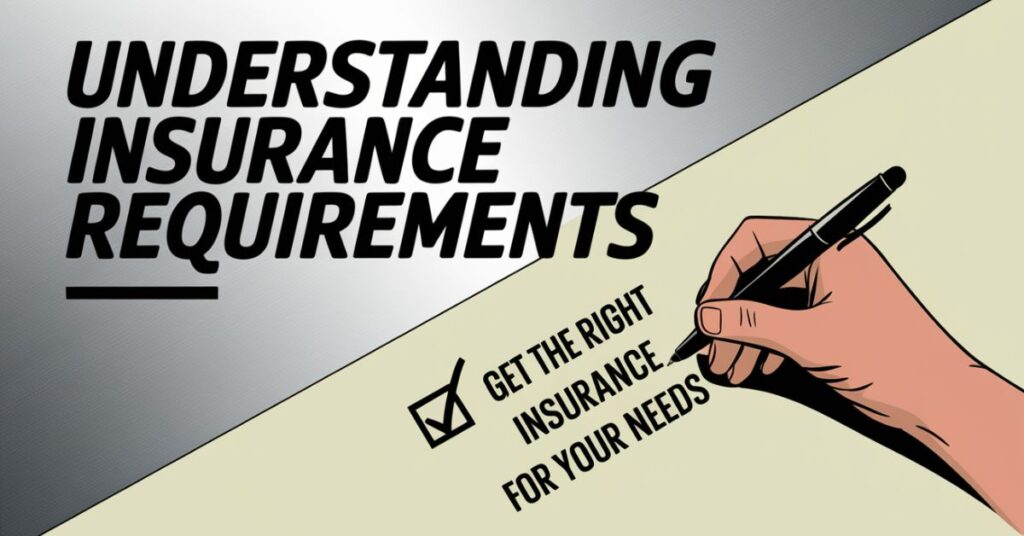
When it comes to insurance for contractors, they need to know a few key things. Let’s break it down into simpler parts.
1. Minimum Coverage Amounts
They should set rules about how much insurance contractors need. This depends on the type of work being done. For big jobs, contractors might need more insurance. For small jobs, less might be okay. Hoas should talk to an insurance expert to figure out good amounts.
2. Policy Duration
Insurance policies have start and end dates. They need to make sure the contractor’s insurance lasts for the whole job. If a policy ends before the work is done, it could cause problems. Hoas should check these dates carefully.
3. Additional Insured Status
Hoas should ask to be named as an “additional insured” on the contractor’s policy. This gives the hoa extra protection. It means the hoa can use the contractor’s insurance if there’s a problem. This is a smart way for hoas to protect themselves.
4. Exclusions and Limitations
Insurance policies don’t cover everything. They have rules about what they will and won’t pay for. They should read these rules carefully. They need to know what’s covered and what’s not. This helps hoas understand their risks better.
5. Proof of Insurance
Hoas should get proof of insurance in writing. A certificate of insurance is a good start. But hoas might also want to see the whole policy. This lets them check all the details. They should keep these documents safe in case they need them later.
Risks of Not Verifying Insurance
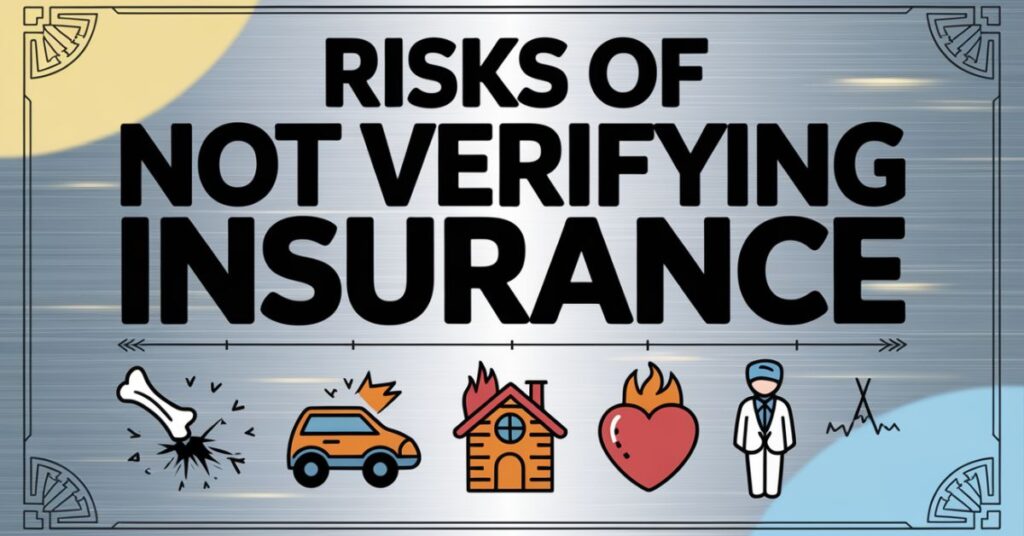
They take big risks if they don’t check contractors’ insurance. This can lead to serious problems for the hoa and its members. Let’s look at what can go wrong.
If a contractor doesn’t have insurance and something bad happens, the hoa might have to pay. This could mean using money that was meant for other things. It might even mean asking members to pay extra fees. This can make people in the community very unhappy.
Hoas can also get in legal trouble if they’re not careful about insurance. If someone gets hurt and sues, the hoa might be blamed for not checking the contractor’s insurance. This can lead to costly court cases and damage to the hoa’s reputation.
Not checking insurance can also lead to poor work quality. Contractors who don’t have proper insurance might cut corners in other ways too. This can result in bad repairs or unfinished projects. In the end, the hoa might have to pay more to fix these problems.
Read this article: Insurance Policy Covers Business During the Restoration Period
Insurance Requirements by Project Type
Different types of work need different kinds of insurance. They should know what to ask for based on the job. A simple guide:
| Project Type | Insurance Needed |
| Landscaping | General liability, Workers’ comp |
| Roofing | General liability, Workers’ comp, Property damage |
| Pool Maintenance | General liability, Workers’ comp, Chemical handling |
| Painting | General liability, Workers’ comp |
| Construction | General liability, Workers’ comp, Builder’s risk |
Benefits of Proper Insurance Verification
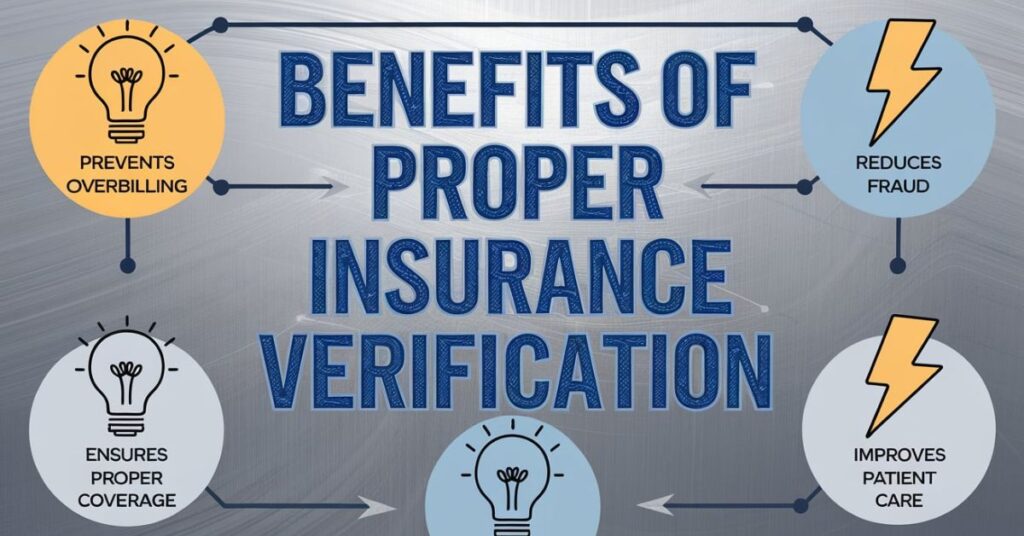
When they check contractors’ insurance carefully, everyone wins. It helps keep the community safe and financially sound. Let’s look at some of the good things that can happen.
First, it gives peace of mind to hoa members. They can feel sure that if something goes wrong, there’s a plan to handle it. This trust is important for a happy community. It shows that the hoa is doing its job to protect everyone.
Second, it can save the hoa money in the long run. While it takes time to check insurance, it can prevent big costs later. If there’s an accident and the contractor is insured, the hoa won’t have to pay. This helps keep fees low for members.
Third, it helps hoas build good relationships with contractors. When both sides understand the insurance needs, it leads to clearer communication. This can make projects go smoother and finish faster. It’s good for everyone involved.
Legal Aspects of Contractor Insurance
They need to know about the legal side of contractor insurance. It’s not just a good idea – sometimes it’s the law. Understanding these rules helps hoas make smart choices.
In many places, contractors must have certain types of insurance to work legally. Hoas should know what’s required in their area. This helps them spot contractors who might not be following the rules. It’s a way to protect the hoa from working with unreliable companies.
Laws can also affect how much insurance contractors need. Some jobs might require higher coverage amounts. Hoas should check local laws to make sure they’re asking for enough insurance. This helps keep the hoa safe from legal troubles.
Sometimes, hoas might need to get legal help to understand insurance rules. A lawyer who knows about hoas and insurance can give good advice. They can help the hoa create clear policies about contractor insurance. This makes it easier for everyone to follow the rules.
Creating an HOA Insurance Policy
Hoas should have a clear plan for dealing with contractor insurance. This helps make sure everyone follows the same rules. How they can make a good policy:
1. Set Clear Standards
They should decide what insurance they need from contractors. This should be written down clearly. The policy should say what types of insurance are required and how much coverage is needed. This makes it easy for contractors to know what to bring.
2. Make a Checklist
A simple checklist can help hoas remember all the insurance details. This list should include things like checking policy dates and coverage amounts. Having a checklist makes it easier to check each contractor’s insurance quickly and accurately.
3. Keep Good Records
They should keep copies of all insurance documents. This includes certificates of insurance and any other paperwork. These records should be kept in a safe place where hoa leaders can find them easily. Good record-keeping helps if there are questions later.
Common Mistakes HOAs Make
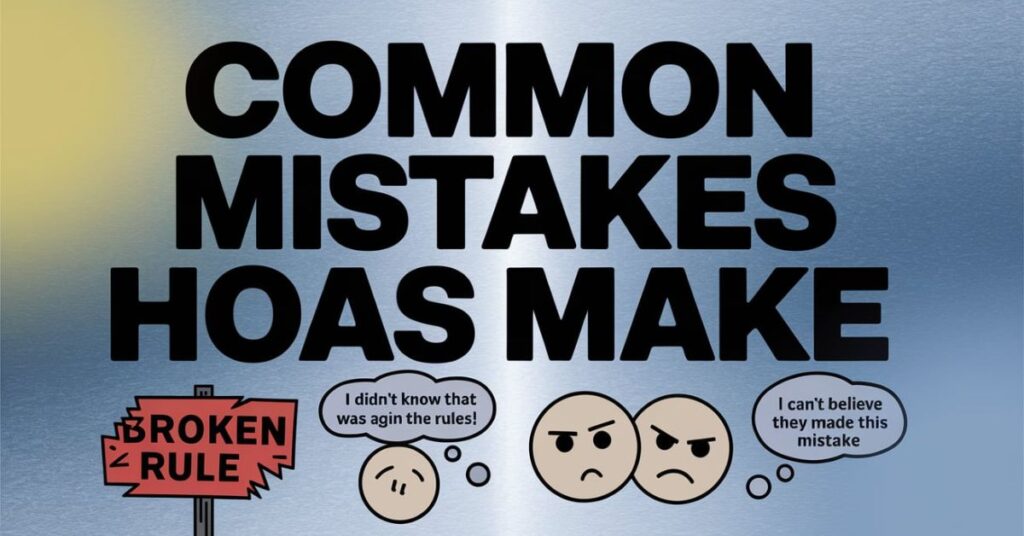
Even when hoas try to be careful, they can make mistakes with contractor insurance. Knowing these common errors can help hoas avoid them. Let’s look at some things to watch out for.
One big mistake is not asking for proof of insurance at all. Some hoas assume contractors have insurance without checking. This can lead to big problems if something goes wrong. Hoas should always ask for proof, no matter how small the job is.
Another error is not reading insurance documents carefully. Insurance papers can be confusing, but it’s important to understand them. Hoas might miss important details if they don’t read closely. This could mean the contractor doesn’t have the right coverage.
Hoas sometimes forget to check if insurance is still valid. A contractor might have insurance when hired, but it could expire during the job. Hoas should check insurance dates and make sure coverage lasts for the whole project.
Tips for Smooth Insurance Verification
Checking contractor insurance doesn’t have to be hard. Hoas can make it easier with a few simple steps. These tips can help make the process smoother for everyone.
- Start early: Ask about insurance when first talking to contractors.
- Be clear: Tell contractors exactly what insurance you need .
- Use technology: Keep digital copies of insurance documents.
- Stay organized: Have a system for tracking when insurance expires.
- Be consistent: Check insurance the same way for all contractors.
Final Words
Hoas have a big job in keeping their communities safe and well-run. Checking contractor insurance is an important part of this work. It helps protect the hoa and its members from unexpected problems and costs.
Throughout this article, we’ve seen why insurance matters so much for hoas. We’ve looked at different types of insurance, how to check for it, and what can go wrong if it’s not there. We’ve also seen how hoas can make good policies to handle insurance checks.
Remember, taking the time to verify contractor insurance is always worth it. It might seem like extra work, but it can save hoas from big headaches later. By being careful about insurance, hoas show they care about their community’s safety and financial health. This builds trust and helps create a better place for everyone to live.
Frequently Asked Questions
How often should hoas check contractor insurance?
Hoas should check insurance before starting any new project. They should also verify it’s still valid for long-term contracts.
What if a contractor refuses to provide insurance proof?
Hoas should not work with contractors who won’t show proof of insurance. It’s too risky for the hoa and its members.
Can hoas accept verbal confirmation of insurance?
No, hoas should always get written proof of insurance. Verbal confirmation isn’t enough to protect the hoa.
What’s the minimum liability coverage hoas should require?
This varies, but many hoas ask for at least $1 million in general liability coverage. Bigger projects might need more.
Should hoas hire an insurance expert to help with verification?
It can be helpful, especially for big projects. An expert can make sure the hoa is fully protected.

David: Seasoned financial expert with 5 years in banking and investments.
Skilled in personal finance, market analysis, and wealth management. Empowers clients to achieve financial goals.

